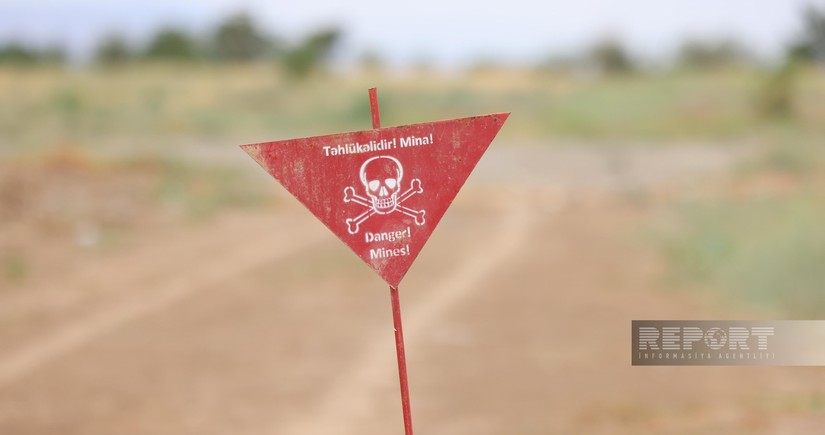Media: Landmine crisis in Azerbaijan cannot be treated as problem of the past
- 01 October, 2025
- 14:28

The international community cannot afford to treat the landmine crisis in the South Caucasus as a problem of the past, political scientist Maximiliaan van Lange said in his article published in Commonspace.
According to Report, he noted that although recent months have seen breakthroughs in relations between Armenia and Azerbaijan, suggesting that sustainable peace is within reach, landmines and unexploded ordnance (UXO) continue to pose a daily threat in the region and remain a contentious issue in relations.
Van Lange said the South Caucasus region as a whole is vulnerable to the mine threat, but Azerbaijan has suffered the most from it.
"Azerbaijan bears the heaviest burden, with over 13% of its territory (around 11,667 km²) still contaminated by landmines, primarily in the Karabakh and East Zangezur regions. Since 2020, 399 people have been killed or injured by landmines in this area, and the total number of indirect and direct victims over the past 30 years exceeds 3,400, including a significant number of women and children. Despite demining efforts having cleared over 200,000 hectares and neutralised almost 120,000 mines and explosives, vast areas of land remain inaccessible. This is delaying the return of around 800,000 displaced people and stifling the region's economic potential," he said.
According to the expert, the World Bank estimates that mine contamination costs the region over $500 million annually in lost productivity.
He noted that the establishment of 'mine-free zones' with mutual monitoring could serve as a tangible confidence-building measure between the countries.
